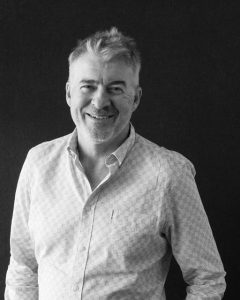
When I became Principal in 2017, I wanted to give greater priority to Te Ao Māori – living in the Māori world. I read an interesting piece by another Principal a little while back – Perry Rush, who is the President of the New Zealand Principal’s Federation. He was writing about attending a Māori Principals’ conference in Auckland as a Pākehā Principal. His starting point was that “Pākehā hold an experience and knowledge of the world that is informed by their status as the majority and colonising culture and its associated privilege.” He continued: “There is little cultural dissonance for Pākehā daily life in Aotearoa. Pākehā live in a society that is affirming of their culture. From birth, Pākehā are conditioned by an ideology that reinforces western and Eurocentric norms. These norms are found in the interactions of daily life, in our schools and what they teach, in textbooks, politics, movies, advertising, holiday celebrations, words and phrases. Pākehā do not see themselves in racial terms because they are the majority.”
However, at the conference he said: “… as a Pākehā, I was in the minority. It was my cultural sense of self that was challenged. I was the one having to adjust. I was the one feeling the prick of difference when we stood to sing the many waiata without always knowing the words. I experienced the frustration of trying to make sense of the kōrero at the pōwhiri, piecing together the words and phrases I recognised, without a sense of context or meaning of the oratory, of trying to guess the humour when laughter roiled the wharenui”.
And how many of us stop to think of that experience in reverse? Where the context that we are completely comfortable with is alien and not understood by someone else. At the conference that Perry attended, the Honourable Kelvin Davis “described … ‘Māori crossing the bridge to the Pākehā world’ but, in Perry’s words, “it benefits Pākehā to cross the bridge to Te Ao Māori and to experience the dissonance of being in the minority.”
I have had similar experiences to Perry In Aotearoa and I have been lucky enough in my life so far to travel to a number of different countries, in most of which I had very little command of the language or understanding of cultural norms. Although I embraced the learning, the moments I particularly remember were with people that wanted to help me when I needed it, inevitably crossing over into my culture to make that connection. And the more I understood, the more enriched I felt.
At Wellington High School we talk about WERO and our biggest wero is to acknowledge this and make steps to redress as that is for the benefit of all of us. This is why we embarked on the Te Ao Māori course at year 9 in 2018 and we now have students in years 9 to 11 that have had that cultural enrichment. This is also why we offer an immersion class from years 10 to 13 for 4 hours a week. At the same time we have run staff Professional Development for most of that time with Te Ao Māori as our focus and we are working with a group of educators from Waikato University called Poutama Pounamu to further our understanding.
These are not solutions and this is not a box ticking exercise, these are merely steps towards achieving more equitable outcomes for all. Returning to my earlier words about our COVID experience, we have shown through our actions, that if we take collective responsibility, if we can be the team of 5 million that wants to enact meaningful change then, we will get better at providing contexts that work for all students. Returning to Perry’s words, “If we are to truly grow as a country linked in partnership by Te Tiriti then Pākehā must learn to live in the Māori world.”
